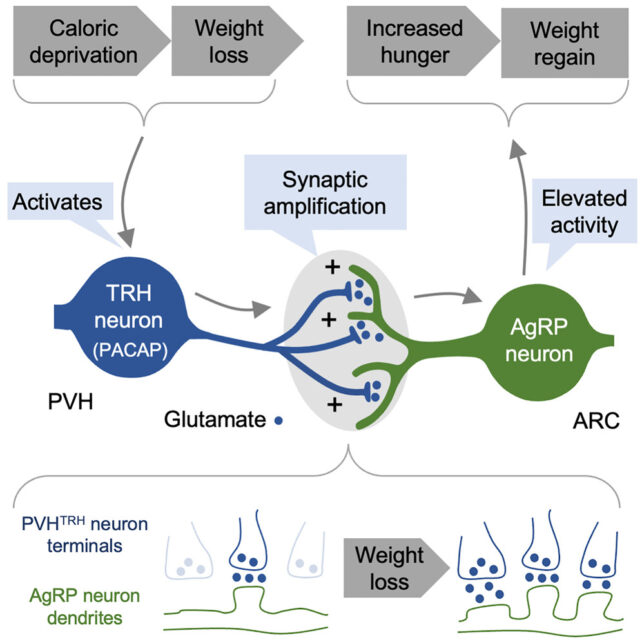Burning calories isn't the only way that exercise leads to weight loss.
A new study on mice, led by researchers at Stanford University and Baylor College of Medicine, has shown that intense physical activity can also naturally suppress appetite.
Scientists found the bloodstreams of mice subjected to bouts of hard exercise were filled with a metabolite called Lac-Phe. In mouse brains, Lac-Phe is thought to stop a specific neural trigger that leads to feeding.
Related: New 'Exercise Pill' Could Induce Fitness Benefits Without Exercise
The discovery hints at an "exciting possibility", says medical researcher Yong Xu at Baylor. Perhaps in the future, novel drugs could tap into this natural neural mechanism for weight management in our own species.
The active ingredient in popular drugs like Ozempic, after all, was originally developed to mimic a natural hormone that regulates blood sugar levels and sugar cravings.
"This finding is important because it helps explain how a naturally produced molecule can influence appetite by interacting with a key brain region that regulates hunger and body weight," explains biochemist Jonathan Long at Stanford University.
Not every experiment in mice will translate to humans, but after scientists discovered Lac-Phe in mice in 2022, follow-up studies have also revealed the metabolite surging after exercise in humans.
A recent endurance training study, for instance, found that individuals with higher Lac-Phe levels after exercise lost more abdominal fat.
Now, follow-up experiments in mice have explored how Lac-Phe works at the molecular level.
In past experiments, when scientists bred mice without the ability to make Lac-Phe, the animals ate more after exercise. On the flip side, when diet-induced obese mice were administered Lac-Phe intravenously, it reduced their food intake and decreased their body weight and fat content, improving their blood sugar control.
"Understanding how Lac-Phe works is important for developing it or similar compounds into treatments that may help people lose weight," says neurologist Yang He from Baylor.
"We looked into the brain as it regulates appetite and feeding behaviors."
The team analyzed two types of brain cells in mice. One, called AgRP neurons, produces a protein that stimulates hunger in the hypothalamus by suppressing another, called PVH neurons, which usually dampens hunger.
When AgRP production is turned off, PVH neurons reign and reduce overall appetite. Lac-Phe seems to inhibit AgRP neurons.

If Lac-Phe works the same way in humans, a drug based on its mechanism could potentially mimic the metabolite to suppress AgRP neurons, and therefore, our appetites.
There's still a lot of work to be done before that possibility is ever realized. Research on Lac-Phe is just beginning, but it's an intriguing start.
The study was published in Nature Metabolism.
